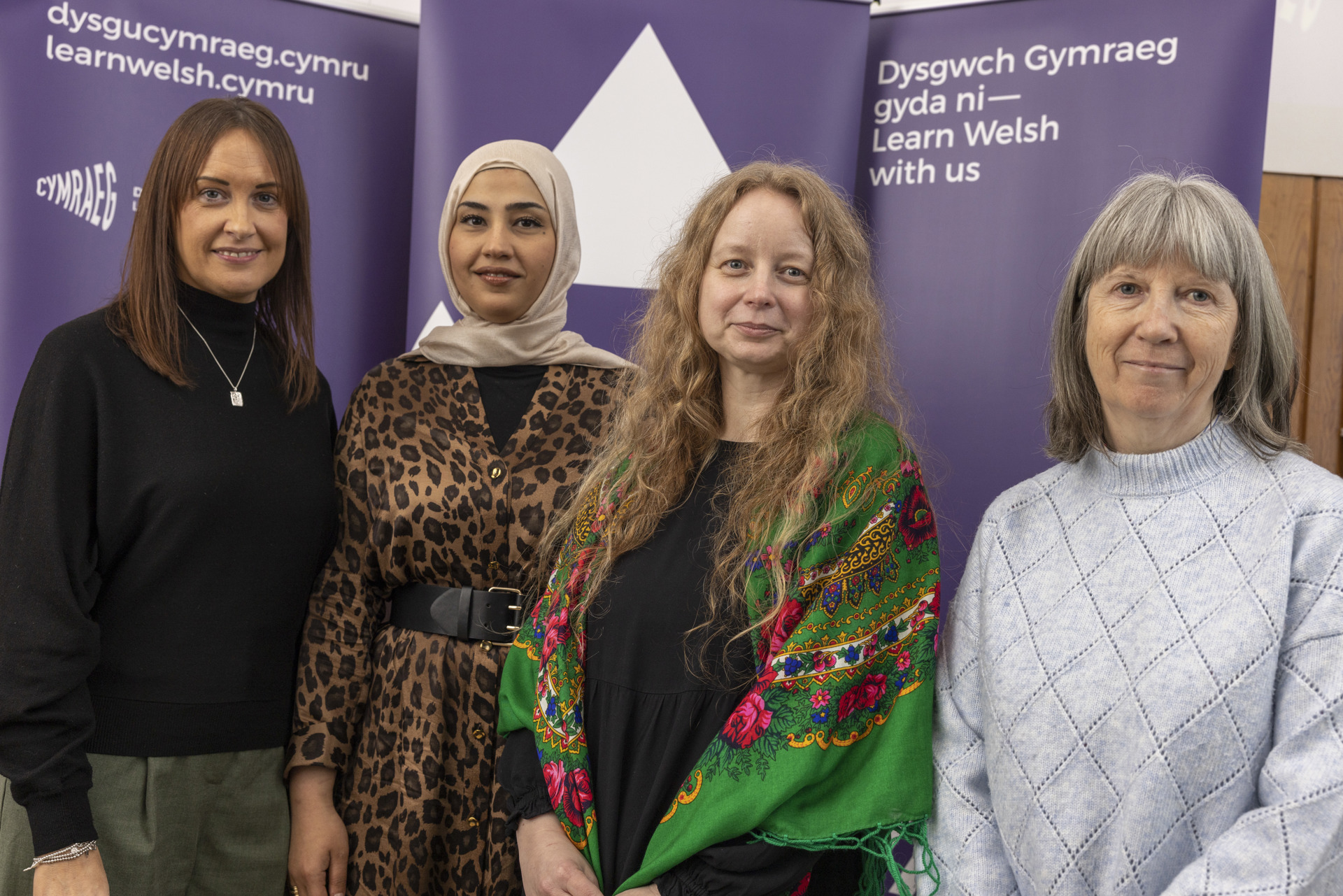
Pictured above, from left to right: Dona Lewis, Chief Executive of the National Centre for Learning Welsh; Zaina Aljumma, who's learning Welsh; Gosia Rutecka, who has learned the language; and Helen Prosser, Director of Teaching and Learning at the National Centre.
Launch of new Learn Welsh resources through the
medium of Syrian Arabic, Ukrainian and other languages
The National Centre for Learning Welsh has launched a package of resources which introduces the Welsh language and Wales to people whose first language is not English or who do not speak much English.
Various learning resources will be available in the free ‘Croeso i Bawb’ (All are welcome) package, through the medium of different languages.
The resources include a self-study digital module that introduces learners to Wales - famous people and places, the history of the language, the arts, legends and sport. It will be available in Ukrainian, Cantonese, Syrian Arabic, Farsi and Pashto.
One of the Centre's partners, SaySomethinginWelsh, will also be offering online Learn Welsh courses through the medium of Syrian Arabic, Pashto, and Dari.
A Learn Welsh taster course, which doesn’t use any English, is already available in a tutor-led format and is used by the Red Cross and Adult Learning Wales. As part of the new package of resources, the course will also be offered as a self-study online programme.
The resources were launched at an event at Oasis, Cardiff with different speakers, including Zaina Aljumma and Gosia Rutecka, who shared their experiences of moving to Wales and of learning Welsh.
The Minister for Education and Welsh Language, Jeremy Miles, said: “Wales is proud to welcome people from different cultures, faiths and backgrounds and I’m delighted that everyone we welcome to Wales will have a chance to learn Welsh – our language.
“I wish all the best to everyone who uses these resources to learn Welsh. The language, after all, belongs to everyone in Wales.”
Dona Lewis, Chief Executive of the National Centre for Learning Welsh said: "Our aim at the Centre is to create new opportunities for adults to learn and enjoy Welsh, and these resources will facilitate the learning for those whose first language is not English or who do not speak much English. We look forward to welcoming even more people to start learning Welsh with us, and to get to know more about Wales."
Helen Prosser, Director of Teaching and Learning at the National Centre for Learning Welsh added: "We have worked closely with different partners and translators to create these resources, and the Centre is grateful to all for their enthusiasm and commitment. Our goal now is to spread the message far and wide, so that people know these resources are available."
Ends
26 January 2023
Notes to editor:
- Pashto and Dari are the official languages of Afghanistan. Dari is also spoken in Iran and Tajikistan. Dari, Farsi (spoken in Iran) and Tajik are dialects of the same language, Persian. Pashto is also spoken in Pakistan and parts of northern Iran. Syrian Arabic refers to one of the three main dialects, Levantine Arabic, which is spoken in Syria, Jordan, Palestine and Lebanon. This dialect will be used and easily understood in everyday life and conversation.
A word from Jeremy Miles MS, Minister for Education and Welsh language


